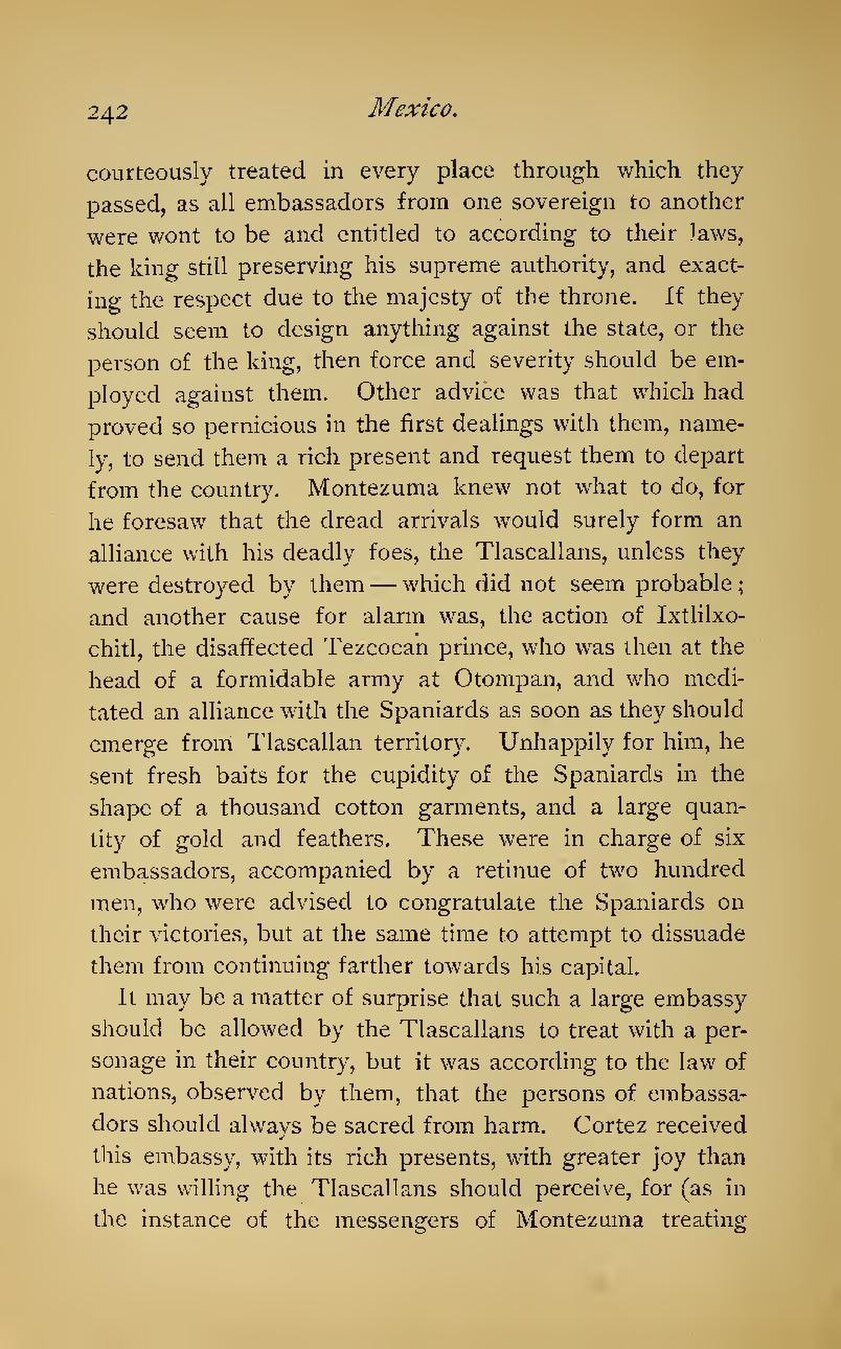courteously treated in every place through which they passed, as all embassadors from one sovereign to another were wont to be and entitled to according to their Jaws, the king still preserving his supreme authority, and exacting the respect due to the majesty of the throne. If they should seem to design anything against the state, or the person of the king, then force and severity should be employed against them. Other advice was that which had proved so pernicious in the first dealings with them, namely, to send them a rich present and request them to depart from the country. Montezuma knew not what to do, for he foresaw that the dread arrivals would surely form an alliance with his deadly foes, the Tlascallans, unless they were destroyed by them—which did not seem probable; and another cause for alarm was, the action of Ixtlilxochitl, the disaffected Tezcocan prince, who was then at the head of a formidable army at Otompan, and who meditated an alliance with the Spaniards as soon as they should emerge from Tlascallan territory. Unhappily for him, he sent fresh baits for the cupidity of the Spaniards in the shape of a thousand cotton garments, and a large quantity of gold and feathers. These were in charge of six embassadors, accompanied by a retinue of two hundred men, who were advised to congratulate the Spaniards on their victories, but at the same time to attempt to dissuade them from continuing farther towards his capital.
It may be a matter of surprise that such a large embassy should be allowed by the Tlascallans to treat with a personage in their country, but it was according to the law of nations, observed by them, that the persons of embassadors should always be sacred from harm. Cortez received this embassy, with its rich presents, with greater joy than he was willing the Tlascallans should perceive, for (as in the instance of the messengers of Montezuma treating
